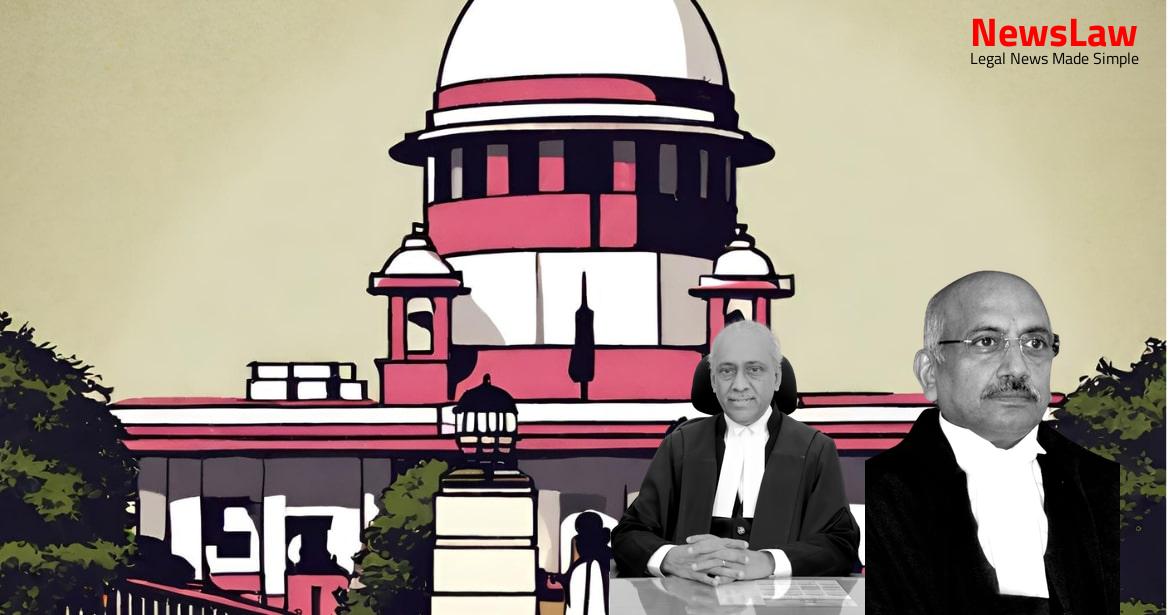This blog delves into the intricate legal analysis conducted by the court in a case involving the reinstatement of a constable based on criminal acquittal. Discover the considerations regarding the standards of proof, the nature of acquittal, and the implications on departmental proceedings. Stay tuned for a deep dive into the nuances of navigating between criminal and disciplinary proceedings in the realm of jurisprudence.
Facts
- Phool Singh, a former constable in the Rajasthan Police Service, faced serious charges including threatening and extorting money, roaming under the influence, and causing injuries with a firearm.
- After his acquittal in a criminal case, he filed for reinstatement, challenging his dismissal on various grounds.
- The High Court quashed his dismissal order and ordered his reinstatement with 50% back wages based solely on his acquittal in the criminal trial.
- The State’s appeal against this decision was dismissed by the Division Bench of the High Court.
- Other arguments regarding procedural anomalies and lack of jurisdiction did not find favor with the court.
- The State appealed to the higher court, highlighting the respondent’s position in a disciplined force.
- The constable was dismissed from service after being held guilty of misconduct in disciplinary proceedings.
- He was acquitted in a criminal trial for the same set of charges.
- The constable approached the High Court of Karnataka and his reinstatement was ordered based on the acquittal from the criminal court.
- The State of Rajasthan appealed against the order of the Division Bench of Rajasthan High Court.
- The appeal by the State was based on the argument that acquittal by the criminal court should not impact departmental proceedings.
Also Read: Analysis of Limitation Act in Special Laws
Issue
- The issue before the court is whether the respondent can be reinstated in service despite being acquitted of the charges by a criminal court.
Also Read: Legal Analysis of Slum Rehabilitation Scheme and Private Arrangements
Analysis
- The Supreme Court considered two factors while deciding the case
- Strict rules of evidence do not apply to disciplinary proceedings
- Judges should use robust common sense in their decision-making
- Reinstatement based on criminal acquittal depends on the nature of the acquittal
- Different standards of proof apply to criminal and departmental proceedings
- The purpose of departmental inquiries is to deal with delinquency and impose penalties according to service rules
- Reinstatement after acquittal in criminal trial does not automatically apply to departmental proceedings
- Judges must not re-appreciate evidentiary findings in disciplinary proceedings
- Delinquent employees seeking reinstatement after criminal acquittal must consider the specific circumstances of the case
- Proportionality is a key aspect of jurisprudence in both criminal and departmental proceedings.
- Judicial craft involves navigating between the two ends of the spectrum in these proceedings.
- Deference is given to the disciplinary authority in fact-finding, while courts can interfere in certain circumstances.
- Acquittal in criminal court does not automatically impact disciplinary proceedings.
- Disciplinary inquiries must adhere to natural justice principles.
- Judicial review in disciplinary matters is guided by deference and autonomy on one end and interference based on evidence or perversity on the other end.
- Respondent was initially convicted by the Trial Court.
- In appeal, the Appellate Court acquitted the respondent.
- The acquittal was based on giving the respondent the ‘benefit of doubt’.
Also Read: Scope of Judicial Scrutiny in Referral to Arbitration
Decision
- The appellant/accused Phool Singh is acquitted for the charge under section 392 IPC & section 3/25 of Arms Act due to benefit of doubt.
- The acquittal is not considered honourable but given due to benefit of doubt.
- The appeal is allowed and the orders of the learned Single Judge and Division Bench of Rajasthan High Court are set aside.
- The order dated 26.11.1994 of the Appellate Authority allowed the appeal of the appellant/accused against the respondent/prosecution, quashing the judgment and sentence dated 21.3.94 passed by the Subordinate Court of Munsif & Judicial Magistrate Dholpur.
Case Title: THE STATE OF RAJASTHAN Vs. PHOOL SINGH (2022 INSC 902)
Case Number: C.A. No.-005930-005930 / 2022



